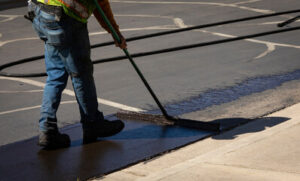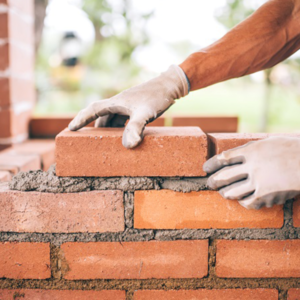Cabinet Painting Sacramento involves more than simply slapping on some new paint. The cabinets must be cleaned thoroughly to cut through stubborn kitchen grime and sanded down. Then, a coat of primer must be applied.

Cabinet-specific paints are available in enamel and latex, both of which have moisture resistance. Enamel options are durable and are more likely to stand up to tough use than latex/oil-based products.
Maple wood is a popular choice for high-end cabinetry, offering durability and an elegant look that will stand the test of time. The light color and fine grain allow for a smooth finish that will resist scratches and dents. The wood is also an ideal substrate for painted fashion finishes, providing a solid base for vibrant colors and rich textures. Maple wood is less expensive than most other domestic hardwoods and provides the same high-end look without sacrificing quality or durability.
Hard maple, also known as sugar maple or rock maple, is a common wood choice for furniture, heavy-duty flooring and other products that require durability and strength. It is a tight-grained wood that is dimensionally stable and responds well to climatic changes. It is easy to work with hand and power tools and can be machined, turning, or glued with success. However, its higher density can cause it to burn when machining with high-speed cutters. It stains well, though blotching may occur when staining without a pre-conditioner or gel stain.
Soft maple, or Acer rubrum, is a lighter and more variable wood with a more varied grain pattern that can add visual interest to projects. Like hard maple, it is easy to work with and can be stained well. However, it is softer than hard maple and does not hold up as well to abrasions.
When selecting a paint for maple cabinets, it is best to use a water-based, non-yellowing coating. Water-based coatings preserve the light color of maple while allowing it to withstand wear and tear. If you prefer a darker finish, choose a clear film finish or dye instead of a pigmented stain to avoid blotching.
If you’re unsure whether your maple cabinets are made of hard or soft wood, a simple Janka hardness test can give you a good idea of its strength and hardness. If you have access to a microscope, you can also observe the cellular structure of the wood and determine its density. Hard maple has smaller cells than soft maple, which contributes to its higher hardness rating.
Plywood
Plywood is a ubiquitous material that is used for everything from furniture making to construction projects. This wood alternative is crafted from layers of thin veneers that are glued together, providing it with remarkable properties that rival those of solid wood. The cross-grain direction of the wood in plywood reduces warping and cracking, and its high strength-to-weight ratio makes it a durable material that can stand up to many types of pressure.
Plies can be made from a variety of materials, including softwoods like pine or cedar, and hardwoods such as maple, cherry, birch, and walnut. Plywood can be purchased in a variety of thicknesses and grades, depending on the specific needs of a project. For example, cabinet grade plywood has a smooth surface that is ready for painting or staining, which is ideal for projects where aesthetics are important. It is also available in a variety of thicknesses, ensuring that it will have the strength required for the job.
Another benefit of using cabinet-grade plywood for your project is its workability. Unlike solid wood, plywood is very easy to cut and bend. It can also be sanded down without splintering, which is useful for achieving a clean, even finish. While sanding plywood can be tricky, it is important to use the correct grit to avoid damaging the surface.
Aside from its superior workability, plywood is also very economical to purchase and work with. This is due to the fact that it is a more resource-efficient material than solid wood. The timber used to make it is harvested from sustainable forests, and the manufacturing process uses fewer chemicals than conventional solid wood production.
When it comes to choosing a paint for plywood, the best option is latex acrylic. This type of paint is the most resistant to moisture and water damage, and it can be used in areas that are frequently exposed to humidity. It is also recommended that you use a sealant or primer before applying your chosen paint to ensure the longevity of your product. In addition to this, you should always wipe your plywood panels down after sanding them to remove any excess dirt or debris.
Poplar
Poplar is an inexpensive wood with many benefits that make it a great choice for cabinet painting projects. Its light color and straight grain help to create a smooth painted finish, making it an excellent alternative to more expensive hardwoods. Additionally, poplar can be stained or painted to match a variety of decor styles. Its moderate density provides just the right amount of stability without adding excessive weight to a project.
While many people are aware that poplar is a softwood, not everyone knows that it can be stained to mimic the appearance of high-end hardwoods like cherry or maple. In fact, when properly finished by a professional carpenter, poplar can look almost identical to other species of wood. Its closed pores are receptive to oil-based paints and acrylics, and it can also be stained with water-based stains. Because of these advantages, poplar is often preferred by trim carpenters when building cabinets and other furniture.
The natural colors of poplar fade more quickly than those of other hardwoods, so it is important to stain it before using it in a project that will be exposed to sunlight or other weather conditions. It is also less durable than other hardwoods, so it should be used for smaller projects that are not subject to heavy use.
Although both aspen and poplar have strong workability, poplar has a more consistent texture than aspen and is easier to cut and shape. Its smooth surface is a good fit for projects that require precision, such as handmade toys or carved elements. It is also a better choice for projects that need to stand up to wear and tear, as it offers greater resistance to damage than aspen.
In addition to its versatility, poplar is a relatively lightweight wood that is easy to manipulate and cuts well. Its uniform surface is free from distracting knots and blemishes, making it ideal for painting and veneering. It is also easy to work with and reduces strain during cutting, transportation, and installation. This makes it a great option for projects that are time-sensitive or cost-sensitive.
Other woods
The type of wood used for cabinet painting can have a significant impact on the final result. Softwoods, such as pine, spruce, and fir, are easier to work with than harder woods. However, they may not have the same resistance to dents and scratches that hard woods do. Softwoods are also more prone to molding and mildew, so they require regular cleaning to keep them looking their best.
Hardwoods, such as oak, are much more challenging to work with, but they can be beautiful and durable. They’re also more resistant to dents and scratches than softwoods, making them a great choice for high-traffic areas. Oak is a dense and sturdy wood that can last for decades if properly cared for. It’s a little more expensive than other hardwoods, but it’s worth the investment for those who want their kitchen cabinets to last a lifetime.
Another hardy, yet affordable option is cherry wood. This wood is one of the few species that actually develops color over time, gaining a yellowish tint as it ages. Like other natural woods, it’s also prone to cracking and expanding with changes in temperature and humidity. This is commonly referred to as “breathing” and can cause hairline cracks along the joints of 5-piece doors.
Before starting the cabinet painting process, it’s important to remove all the hardware. This will make it much easier to paint and prevent you from getting any color on the handles and knobs. It’s also a good idea to clean the cabinets thoroughly. Any grease or dirt can ruin a fresh coat of paint, so wipe them down with a degreaser or a mix of water and mild soap. Once they’re dry, sand the surfaces with fine-grit sandpaper to help the paint adhere. Finally, apply a primer to help the paint last longer.



